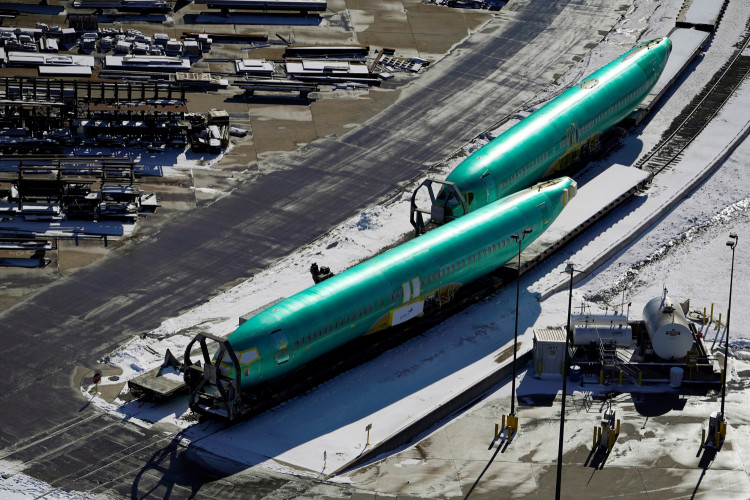Spirit AeroSystems announced on Friday that it will furlough 700 workers for 21 days as the ongoing strike by Boeing machinists continues to disrupt production. The furloughs, which will impact employees working on Boeing's 767 and 777 widebody jet programs, come amid mounting financial strain for Spirit AeroSystems, a key supplier for Boeing. The strike, which began on September 13, involves over 32,000 Boeing workers and has halted production on critical aircraft programs.
"We recognize the impact this has on our valued teammates and their families, and we are committed to supporting them through this period," said Spirit CEO Pat Shanahan in a statement. Spirit, based in Wichita, Kansas, has been struggling with a buildup of inventory, and the furloughs are part of broader cost-cutting measures that also include a hiring freeze and restrictions on travel and overtime. The company has said it does not have room for additional storage of the 767 and 777 fuselages it produces.
The decision to furlough workers follows a series of challenges for both Boeing and Spirit AeroSystems over the past few years, including the grounding of the 737 MAX after two fatal crashes, the global pandemic, and a series of quality issues. Spirit has also reduced its production of 737 MAX fuselages from 31 to 21 per month over the last three months. According to industry sources, Boeing has been in regular communication with Spirit regarding its finances, and Spirit has fully drawn on a $350 million bridge loan facility established when Boeing agreed to acquire the supplier.
Spirit Aero's spokesperson, Joe Buccino, indicated that further layoffs and furloughs could occur if the strike extends beyond November. "If the strike continues beyond November, we will have to implement layoffs and additional furloughs," Buccino said, signaling the uncertain path ahead for the aerospace supplier. The temporary furloughs announced on Friday affect approximately 5% of Spirit's U.S. workforce, highlighting the broader impacts of Boeing's labor dispute on its supply chain.
The strike began when Boeing machinists overwhelmingly rejected a tentative labor deal with the company, and negotiations remain at an impasse. The strike has posed a significant challenge for Boeing's CEO, Kelly Ortberg, who took over the reins just a few months ago. Boeing has also announced plans to reduce its workforce by 10%, equivalent to about 17,000 jobs, as it continues to grapple with ongoing financial strain and attempts to cut costs.
Production at Boeing's 767 and 777 programs remains halted, and work on the popular 737 MAX program has also been delayed. Spirit AeroSystems has continued to build up inventory on these programs, which it says is reaching capacity. "We have built up significant inventory," Buccino said. "Work on all three programs is stalled because of the strike." Despite these challenges, Spirit has increased inspections of 737 MAX fuselages to ensure they are ready for delivery once the strike ends.
Boeing's troubles are compounded by the fact that it has faced a series of production and quality issues over the past six years. The delays and ongoing labor strike have put Boeing's goal of producing 38 MAX jets per month by the end of 2024 at risk. According to industry insiders, Boeing has been inspecting the new fuselages at Spirit's Kansas factory, but the vetting process has taken longer than expected, leading to further delays.
Spirit Aero's financial woes have also been exacerbated by its second-quarter losses, which more than doubled compared to the previous year. The company has been holding off on investments due to cash flow constraints linked to the strike. Spirit is reportedly considering additional help from Boeing, but both companies have remained tight-lipped on the specifics of any financial assistance or output adjustments.
Boeing, for its part, has declined to comment on the situation. However, it is known that the company is currently raising debt or equity to bolster its liquidity amid the financial pressure brought on by the strike and other operational challenges. Boeing's plan to acquire Spirit AeroSystems, announced earlier this year, is still expected to close by mid-2025, but the uncertainty surrounding the strike and production delays could have implications for that timeline.
The impact of the strike has rippled through the entire aerospace supply chain, with Spirit and other Boeing suppliers feeling the financial pinch. With production halted on key aircraft programs, the aerospace industry is facing growing concerns about meeting demand and delivering on orders. Spirit Aero's shares dipped 0.6% in morning trading on Friday, although they remain on track for a weekly gain.





